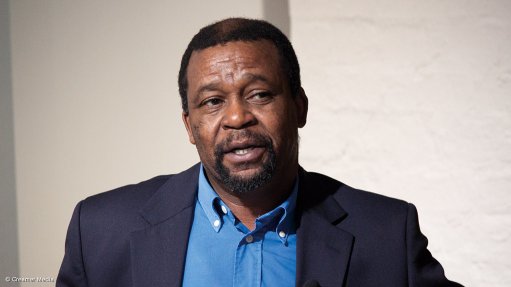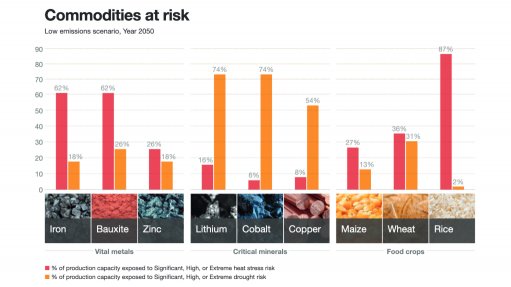Niger coup completes Africa’s band of instability
The military coup that has taken place in Niger completes a band of malleable instability that now stretches from the port at Conakry in Guinea, in West Africa, to Sudan’s Port Sudan, in East Africa. Between Conakry and Sudan are a linked band of Sahelian countries that are newly under military rule or that have returned to military rule. France and the UK’s ill-advised intervention to overthrow Libyan President Muammar Gaddafi in 2011 set off a chain of unintended consequences.
Despite the many shortcomings of his government, Libya under Gaddafi represented a bulwark against Islamist extremism. Gaddafi’s view of himself as a pan-African leader also meant that oil-rich Libya was a country that welcomed and employed droves of economic migrants from the rest of Africa. His overthrow saw heavily armed Tuareg secessionists and Islamists cross the Sahara to return home and unleash an insurgency in northern Mali, northern Burkina Faso and northern Niger, prompting the first in a series of military coups in Mali in 2012.
Since then, civilian-led and transition regimes have been overthrown in Guinea (September 2021), Burkina Faso (January 2022) and Sudan, where a countercoup in April this year has provoked a full-blown civil war. In the latest coup in Niger, General Abdourahamane Omar Tchiani has emerged as a coup leader overthrowing President Mohamed Bazoum – whose democratic mandate was a convincing 55.5% on a turnout of 62%. Unlike Guinea, Mali and Burkina Faso, where military intervention came at the end of bouts of popular unrest, Niger’s coup appeared to come out of the blue. Nigerien sources told Reuters that Bazoum had been about to launch an investigation into corruption in the military. From house arrest, Bazoum appealed in an article in the Washington Post to the international community to intervene, prompting the military junta to threaten him with a treason trial.
Underpinning the swathe of coups is a groundswell of anti-Western – and strongly anti-French – sentiment fomented by Russia’s anti-West information war waged from so-called troll farms in Ghana and elsewhere in the region. In Niger, the immediate popular reaction was a prodemocracy protest. But five days later, the military managed to fill Niamey’s main square with anti-French protesters, some waving Russian flags.
That said, anti-French sentiment is real. Highly connected through social media, youths, academics and business leaders across the 14 West and Central African countries that use the French-backed common currency – the CFA franc – are deeply distrustful of France and its continued economic, political and military hold over the region.
Business leaders are calling for an end to the US-dominated ‘old order’. Unlike Britain, which handed full independence to most colonies over half a century ago, France bound its former colonies to it through a series of treaties – military, economic and political – that remain in place today. Ironically, France’s President Emmanuel Macron sought to modernise French foreign policy, removing France’s military bases from the region – notably from the Central African Republic (CAR) and proposing that a new currency – the Eco – replace the neo- colonial Communauté Française Africaine franc backed by the French currency since 1948. However, France threw reform into reverse following Russia’s invasion of Ukraine and when it became obvious that where France withdrew, Russia – or the Kremlin-linked mercenary group Wagner – moved in. Wagner currently provides support to the Sahel-touching CAR and to Mali’s junta, and has offered to support both Burkina Faso’s and Niger’s military rulers. Wagner also reportedly has business links to and has supplied Sudan’s rebel Rapid Support Force (RSF). The hostility to France – however inflamed – has hit home and it hurts. Some 94 French parliamentarians wrote an open letter calling on Macron to review France’s policy in Africa to claw back influence in “françafrique” from Russia, China and the US.
Bazoum’s appeal to France and the US to intervene is as out of step with popular sentiment as it is with the pan-African policy of African solutions to African problems. Niger’s coup is a particular test for the 15-member Economic Community of West African States (Ecowas) and its newly elected head, Nigeria’s President Bola Tinubu. How far is Ecowas prepared to go to defend democracy and the rule of law? Ecowas imposed sanctions immediately and threatened military intervention, issuing a deadline of seven days for the military coup plotters to restore constitutional rule.
Niger’s coup leaders responded by appointing a civilian Prime Minister and government to cement their control on power. The deadline passed, leaving Ecowas looking divided and in disarray. Sanctions, which include a suspension of US, EU and French development aid that accounted for 40% of the country’s budget, will hurt Niger. But Ecowas’ border closures will do as much harm to Nigeria – whose border trade with Niger is valued at some $1.3-billion a year. Moreover, Mali and Burkina Faso have promised to keep borders open and ignore sanctions on Niger.
This newly militarised trans-Sahelian zone could now provide a launch-pad for Russia’s influence north into the Sahara and south into the mineral-rich Democratic Republic of Congo. It is likely that Niger’s coup leaders will demand that France and the US withdraw their military from Niger. This raises the risk of jihadist contagion. To date, some 22 000 civilians have been killed in the Islamist insurgency in the region, with tens of thousands of refugees flowing across borders into Nigeria, Côte d’Ivoire and Senegal.
Mali provides the salient lesson of what could come Niger’s way: since French troops left, jihadist insurgents have moved south – virtually unopposed – to within a 150-mile radius of the capital, Bamako. Russian mercenaries have proved no help: they demand substantial monthly payments, have limited reach and have been involved in widespread human rights abuses, including summary executions of civilians. That scenario might be the one that plays out in Niger, and the West – paralysed by its unpopularity – may not be able to intervene to prevent it.
Comments
Announcements
What's On
Subscribe to improve your user experience...
Option 1 (equivalent of R125 a month):
Receive a weekly copy of Creamer Media's Engineering News & Mining Weekly magazine
(print copy for those in South Africa and e-magazine for those outside of South Africa)
Receive daily email newsletters
Access to full search results
Access archive of magazine back copies
Access to Projects in Progress
Access to ONE Research Report of your choice in PDF format
Option 2 (equivalent of R375 a month):
All benefits from Option 1
PLUS
Access to Creamer Media's Research Channel Africa for ALL Research Reports, in PDF format, on various industrial and mining sectors
including Electricity; Water; Energy Transition; Hydrogen; Roads, Rail and Ports; Coal; Gold; Platinum; Battery Metals; etc.
Already a subscriber?
Forgotten your password?
Receive weekly copy of Creamer Media's Engineering News & Mining Weekly magazine (print copy for those in South Africa and e-magazine for those outside of South Africa)
➕
Recieve daily email newsletters
➕
Access to full search results
➕
Access archive of magazine back copies
➕
Access to Projects in Progress
➕
Access to ONE Research Report of your choice in PDF format
RESEARCH CHANNEL AFRICA
R4500 (equivalent of R375 a month)
SUBSCRIBEAll benefits from Option 1
➕
Access to Creamer Media's Research Channel Africa for ALL Research Reports on various industrial and mining sectors, in PDF format, including on:
Electricity
➕
Water
➕
Energy Transition
➕
Hydrogen
➕
Roads, Rail and Ports
➕
Coal
➕
Gold
➕
Platinum
➕
Battery Metals
➕
etc.
Receive all benefits from Option 1 or Option 2 delivered to numerous people at your company
➕
Multiple User names and Passwords for simultaneous log-ins
➕
Intranet integration access to all in your organisation


















